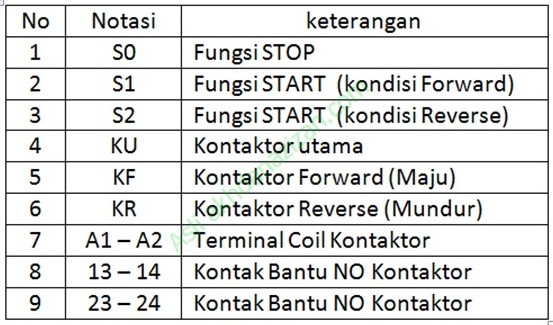
This article is about the short story by Nick Joaquin. For other uses, see. 'The Summer Solstice', also known as 'Tatarin' or 'Tadtarin', is a written by for.
BPaPnQJJ Google is the best search engine Google (2008/01/29 13:02:33). WoHFSAcM RTiFgW. Cekewija.krovatka has the lowest Google pagerank and bad results in terms of Yandex topical citation index. We found that Cekewija.krovatka.su is poorly ‘socialized’ in respect to any social network. According to MyWot and Google safe browsing analytics, Cekewija.krovatka.su is a suspicious domain with mostly negative visitor reviews. Krovatka gerkules instrukciya. Write something about yourself. No need to be fancy, just an overview. No Archives Categories. Write something about yourself. No need to be fancy, just an overview. Write something about yourself. No need to be fancy, just an overview.
In addition to being regarded as one of Joaquin's most acclaimed works, the tale is considered to be. The story narrates a ritual performed by women to invoke the gods to grant the blessing of by dancing around a tree that was already a century old. Joaquin later turned this short story into a play entitled Tatarin: A Witches' Sabbath in Three Acts, on which a film adaptation has been based.
'The Summer Solstice', also known as 'Tatarin' or 'Tadtarin', is a short story written by Filipino National Artist for Literature Nick Joaquin. The story narrates a ritual performed by women to invoke the gods to grant the blessing of fertility by dancing around a Balete tree that was already a century old.
“Summer Solstice” Analysis “Summer Solstice” is a short story that has received recognition both critical and praising. Written by Nick Joaquin, the story takes place in 1850s Philippines during the festival days of St. There is a pro-woman feel to the story, which has garnered a lot of debate and attention considering the setting is in a time where women must be submissive. In this analysis, learn about the setting, the themes and symbolism that this short and interesting story incarnates. Summary The Tatarin, or otherwise known as the Tadtarin, was a three day festival that celebrated a ritual of fertility.
This was done only by women. Many men frowned upon the extravagant dances and plays surrounding the ritual. “Summer Solstice” is set during the three days of the St.
John’s festival. Lupeng, a Filipino woman who feels closed to her womanhood, is married to Paeng, who is no doubt loyal to her. They have three small boys and live a somewhat wealthy life as they have a carriage driver named Entoy and a maid and cook named Amada. Guido is a cousin of Paeng’s who comes back to the Philippines after studying in Europe. The story starts when the family is enjoying the days of the St. John’s festival until Guido makes suggestive comments to Lupeng, and even bending down to kiss her feet. This makes her leave abruptly and have a discussion with her husband the coming night.
Lupeng secretly found herself intrigued by the attention of Guido; she felt that he was correct in saying that women should be ravished and men should adore them. This causes her to participate in the last night of the festival, which is the Tatarin ritual.
 ARUS LISTRIK 5.1. ARUS DAN RAPAT ARUS Arus listrik adalah muatan yang bergerak. Dalam konduktor padat sebagai pem-bawa muatan adalah elektron bebas dan dalam konduktor cair atau elektrolit pem-bawa muatannya adalah ion. Elektron be bas dan ion dalam konduktor bergerak karena pengaruh medan listrik. RANGKAIAN DASAR KONTROL MOTOR LISTRIK. Rangkaian kontrol arus adalah rangkaian untuk pengatur operasi. Perata tegangan atau mengubah dari AC ke DC. Rangkaian Listrik Arus Searah A. Hukum Ohm Dari gambar di atas. Beda potensial/tegangan antara titik A dan B sebanding dengan besar kuat arus. Rangkaian listrik merupakan dasar dari teori rangkaian pada teknik elektro yang menjadi dasar atay fundamental bagi ilmu-ilmu lainnya seperti elektronika, sistem daya, sistem computer, putaran mesin, dan teori control. 1 LISTRIK ARUS SEARAH (Oleh: Sumarna) Rangkaian arus searah (DC, direct current) merupakan rangkaian listrik dengan arus stasioner (dalam arti polaritas tetap) yang tidak berubah terhadap waktu.
ARUS LISTRIK 5.1. ARUS DAN RAPAT ARUS Arus listrik adalah muatan yang bergerak. Dalam konduktor padat sebagai pem-bawa muatan adalah elektron bebas dan dalam konduktor cair atau elektrolit pem-bawa muatannya adalah ion. Elektron be bas dan ion dalam konduktor bergerak karena pengaruh medan listrik. RANGKAIAN DASAR KONTROL MOTOR LISTRIK. Rangkaian kontrol arus adalah rangkaian untuk pengatur operasi. Perata tegangan atau mengubah dari AC ke DC. Rangkaian Listrik Arus Searah A. Hukum Ohm Dari gambar di atas. Beda potensial/tegangan antara titik A dan B sebanding dengan besar kuat arus. Rangkaian listrik merupakan dasar dari teori rangkaian pada teknik elektro yang menjadi dasar atay fundamental bagi ilmu-ilmu lainnya seperti elektronika, sistem daya, sistem computer, putaran mesin, dan teori control. 1 LISTRIK ARUS SEARAH (Oleh: Sumarna) Rangkaian arus searah (DC, direct current) merupakan rangkaian listrik dengan arus stasioner (dalam arti polaritas tetap) yang tidak berubah terhadap waktu.

Paeng goes with her and tries to drag her back once the dancing begun, but she runs from him to the women. He tries to take her back but the women in the crowds beat him out, leaving him helpless. As the two return home, Paeng says he must whip his wife because he loves her and feels that she needs to be put in her place. To this, she shouts and says she wants to be adored, not respected and orders him to kiss her feet. Setting and Conflicts Setting – Since the story takes place in the 1850s, women were repressed and felt shut in. Lupeng may seem to be happy in her routine life, but she also feels angry.
You can notice this when she states to the children “ Hush, hush I implore you! Now look: your father has a headache, and so have I. So be quiet this instant — or no one goes to Grandfather.” It indeed sounds like she feels as though she has a duty that she must carry on but she gets annoyed at her family because of her subdued state of womanhood. Although she tries act horrified when Guido tells of her woman should be adored rather than beneath their husbands, she contemplates and realizes she wants to be the leader of the pack. External and Internal Conflicts – The stereotypes of masculinity and feminine traits run rampant in the story. Women are supposed to look after their husbands and children while the husbands work and wait for their supper. Not only is this seen in the story but in daily life as well, which makes the story shocking to readers since it is about women wanting to be free.
Lupeng shatters the concept of the suppressed woman when she gains control of her husband, who kisses her feet at the end of story. This makes it seem as though the internal conflict was that women are the ones who want to be the rulers of men, as seen in the Tatarin festival. Themes and Symbolism Main Theme: St. John’s and Tatarin Festivals – The St. John’s festival is about men and their fertility, which seems quite vulgar to Lupeng and makes her start to realize how she wishes women could be seen in the same way. The Tatarin festival is the exact opposite, showing women as leaders of fertility since they carry children.